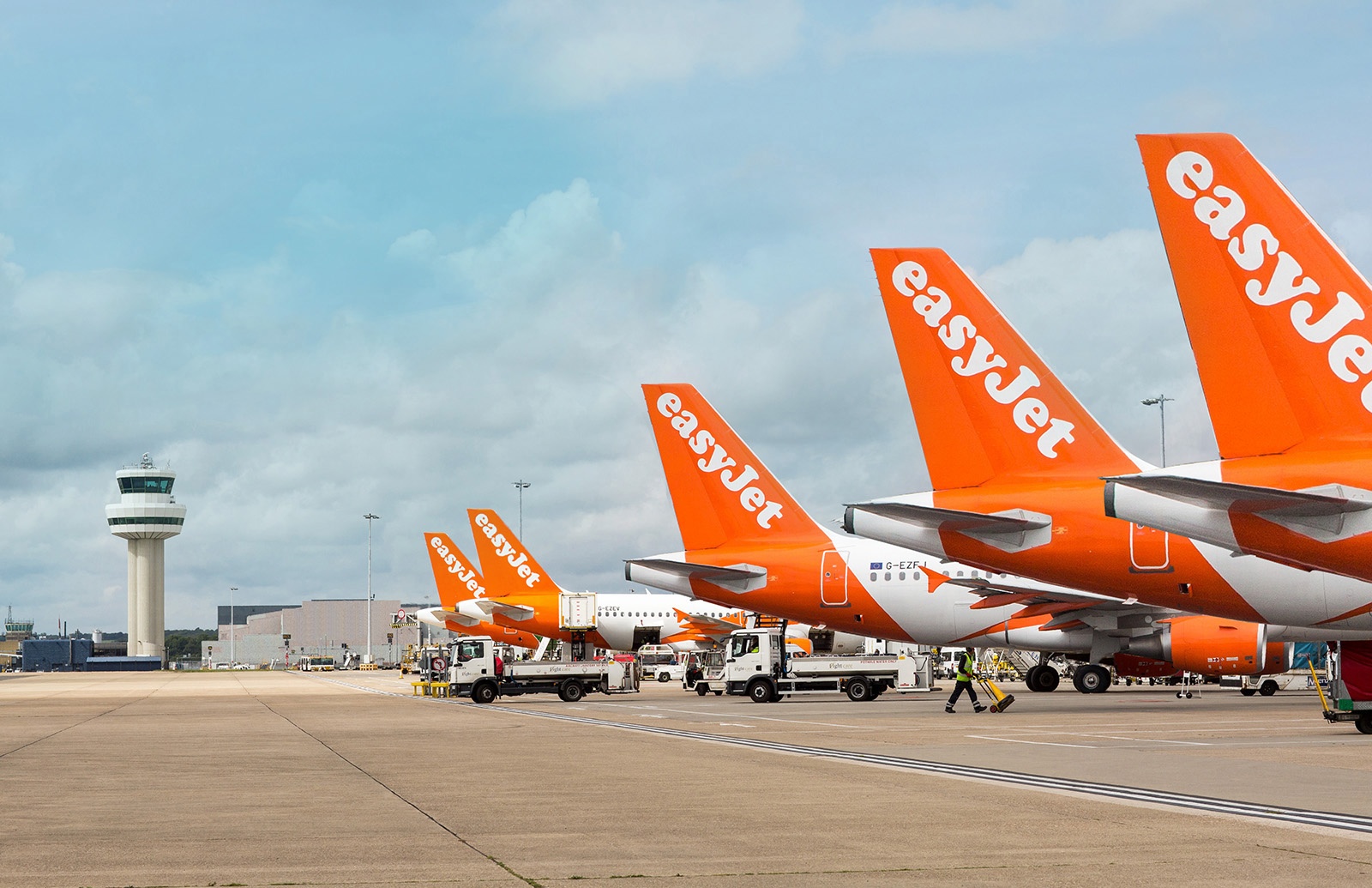easyJet has reported that its performance during the quarter ending 31 December 2020 was in line with expectations. The airline group’s total revenue for the quarter fell by 88% to £165 million, with passenger revenue down by 90% to £118 million and ancillary revenue down by 84% to £47 million.
Passenger numbers for the quarter decreased by 87% to 2.9 million, in line with a decrease in capacity of 82% to 4.4 million seats, representing 18% of FY2019 capacity levels. easyJet’s load factor decreased by 26 percentage points to 66%.
Commenting, Johan Lundgren, easyJet Chief Executive said that the airline has taken the “right actions” to emerge from the crisis as a leaner business with a reduced cost bases, adding that the retrenchment of legacy carriers at key airports “will provide additional opportunities for easyJet”. Like many, Lundgren says the vaccination programmes are key to unlocking air travel. The airline is anticipating “a release of pent-up demand for travel” citing research by easyJet that shows 65% of UK travellers have or plan to make a travel booking in 2021. easyJet says that it has retained the flexibility to “rapidly ramp up to capture that demand”.
Over the past year, easyJet has maintained its an investment grade balance sheet, improved its debt repayment profile and secured further liquidity through a new c.£1.4 billion loan facility backed by UK Export Finance. Airline costs continue to decline – easyJet’s headline costs excluding fuel fell by 52% during the quarter as “material savings” were achieved in airport fees, ground handling, crew and maintenance costs. The airline group is working to reduce its headcount by 30% and its consulting on this as well as ways to optimising its network and bases, improve productivity and becoming more efficient.
easyJet estimates that its fixed cost and capex cash burn in a fully grounded scenario has fallen to around £40 million per week.
Fuel usage is down by c.1.5%, due to fuel efficiency measures including the use of single-engine taxi on arrival and departure; using advance weather information to improve navigation and optimise routing to avoid poor weather and headwinds; and optimising climb speed on takeoff to get to a more fuel-efficient phase of flight sooner.
easyJet has launched a new fare class called Standard Plus, which includes Up front seat selection, access to easyJet Plus Bag Drop, Speedy Boarding, one cabin bag and an additional under seat cabin bag. The airline is also changing its cabin bag policy from February 2021, which will bundle the ability to bring a large overhead cabin bag on board with Up front and Extra legroom seating with dynamic pricing in place.
As previously announced, easyJet has agreed with Airbus the deferral of 22 aircraft from Financial Years 2022, 2023 and 2024, moving 15 delivery dates.
easyJet has also completed sale and leaseback transactions generating total gross cash proceeds of $1,026 million (c.£779 million) during the first quarter. The transactions across 32 aircraft have increased the lease liability by a total of c.£492 million. easyJet entered these transactions with a number of counterparties including SMBC Aviation Capital. Following these transactions, easyJet retains ownership of 55% of the total fleet, with 38% unencumbered. The airline confirmed that it is not currently considering any further large-scale sale and leaseback transactions.
With the new UKEF facility in place, easyJet has now repaid and cancelled part of its shorter term debt, namely the fully drawn revolving credit facility of $500 million and term loans of c.£400 million. “This frees up a number of aircraft assets to further strengthen easyJet's balance sheet and materially extends the maturity profile of secured borrowing,” said easyJet, adding that the airline now has unrestricted access to c.£2.5 billion of liquidity.
Based on current travel restrictions in the markets in which we operate, easyJet expects to fly no more than c.10% of Q2 2019 capacity for the second quarter of the 2021 financial year.
easyJet stated that the European slot waiver mechanism in place for this winter enables the airline to “best match our capacity against the lower demand that currently exists,” adding that discussions are underway by both the European Commission and the UK regarding a revised slot waiver for the Summer 2021 season.

